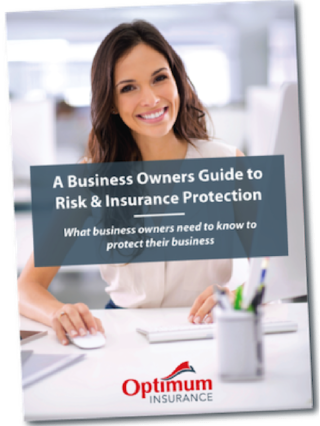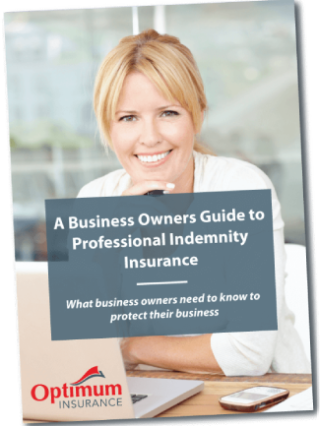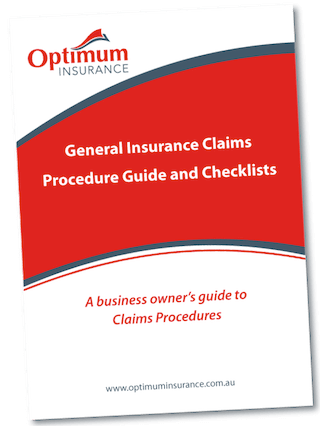Resources on Aged and Disability Care
To explore more about Australia’s Aged and Disability industry, hover and click on each of the recommended sources below to visit their official websites.

The Aged Care Quality and Safety Commission is designed to protect and enhance the well-being, health, safety, and quality of life of the people who receive aged care.
Read More
The Department of Social Services is dedicated to the development of the well-being of families in Australia. A part of its responsibilities is providing targeted support and services for people with disabilities and carers.
Read More
The Department of Health develops and delivers policies and programs. It provides advice to the Australian Government on sport, aged care, and health while working with a broad range of stakeholders to help improve the health of all Australians.
Read More
As the Australian Government’s independent research and advisory body, it provides information and advice on a wide range of social, economic, and environmental issues in Australia. The website provides an inquiry report on disability care and support.
Read More
Blue Care is an agency of Uniting Care and is committed to provide care and support to individuals who need them with care and compassion.
Read More
Carer Gateway is an initiative of the Australian Government to help carers by providing them with practical advice and support to help better their situation.
Read More
As a non-government organization for carers in Australia, Carers NSW focuses on the improvement of the lives of carers by working with other state and territory carer associations.
Read More
COTA Australia is the advocacy, representation, and peak policy development organisation for older Australians. It represents COTAs in every territory and state, serving over 500,000 older Australians.
Read More
The Disability Gateway is aimed to provide assistance to people with disabilities as well as their families and carers to access and find services across Australia.
Read More
Health Direct Australia aims to improve the health of Australians by working towards the health priorities of the territory, state, and Commonwealth funders.
Read More
My Aged Care is a government-funded initiative that provides aged care services to Australians.
Read More
The NDIS is an independent statutory agency that implements the National Disability Insurance Scheme, which is aimed to support and better the lives of hundreds of thousands of Australians with permanent and significant disability as well as their carers and family.
Read More
NDS represents a full spectrum of Australia’s disability service providers. It gives them the voice to enable the sector to influence outcomes, initiate change, and deliver funding for the best quality of life for those living with disabilities.
Read More
The Summer Foundation is a non-government organisation that is committed to resolving the issue of young people living in aged care by supporting, informing, and empowering people with disability and their families.
Read MoreFrequently Asked Questions
Helpful responses to frequently asked questions relating to Aged and Disability Care and Insurance. Read below to learn more.
What are the different types of services of Care Providers?
Disability Care
Disability care provides support to people living with significant and permanent disability. Your responsibilities include but is not limited to assisting your clients with their basic daily routine such as bathing, dressing up, and eating.
Respite Care
Respite care allows someone else to provide care while the primary caregiver is unavailable. If, in any case, you need to take a break for an important matter or if you are unable to provide care due to an illness or accident, you can use respite care.
Aged Care
Aged care assists the elderly by helping them accomplish personal tasks and daily activities either in a residential care facility or in the client’s home. These can include the carer helping with dressing up, bathing, cleaning, eating and proper medication intake.
Attendant Care
Attendant care refers to services for an individual’s essential and regular personal care. Generally, these services assist people with feeding, bathing, grooming, toileting, dressing, and other day-to-day needs, depending on the client’s level of capacity. The service may be long-term for people with incapacitating medical conditions, or short-term for people recovering from accidents or disease.
Domestic Care
Domestic care helps individuals live in a clean and comfortable home by providing them assistance with housekeeping services such as cleaning, watering plants, washing up, doing the laundry, preparing shopping lists, and paying bills.
Transitional and Post-Acute Care
Post-acute care, or transitional care, is a program that gives compassionate assistance to an individual during the next phase of his recovery process or after a hospital stay. It provides short-term care, which can last for up to 12 weeks.
Transportation Assistance
Transportation assistance allows people living with disabilities to travel independently. Transport services include transit to gatherings, medical and health appointments, and shopping trips.
Independent Support Living
Independent support living provides help and supervision on daily tasks that enable an individual to live independently while building and honing their personal skills. As a carer, you may help with tasks such as cooking meals so that the person eventually learns how to prepare meals for themselves
Transitional and Post-Acute Care
Post-acute care, or transitional care, is a program that gives compassionate assistance to an individual during the next phase of his recovery process or after a hospital stay. It provides short-term care, which can last for up to 12 weeks.
Transportation Assistance
Transportation assistance allows people living with disabilities to travel independently. Transport services include transit to gatherings, medical and health appointments, and shopping trips.
Independent Support Living
Independent support living provides help and supervision on daily tasks that enable an individual to live independently while building and honing their personal skills. As a carer, you may help with tasks such as cooking meals so that the person eventually learns how to prepare meals for themselves
What is the difference between My Aged Care and NDIS?
My Aged Care and NDIS are similar in their purpose of helping people regain their independence. However, the key difference between the two is defined by the age of their participants. People under the age of 65 may opt to receive government subsidies and support under the NDIS, provided they have a significant or permanent disability. On the other hand, people over 65 may receive support under My Aged Care. When an NDIS participant turns 65, they may choose to continue receiving support under NDIS or transfer to My Aged Care under certain circumstances.
Are there existing services and programs catering to Australia’s Carers?
While Care organisations are diligent in providing resources and information to the people in need of care, they are also equally helpful to the community of carers consisting of employed, self-employed, or volunteer workers. Carers may find valuable information dedicated to their needs within some of the sites listed above. Also, here are some of the existing services and programs dedicated to only carers’ support:
Carers Australia
The Carers Australia website contains various information about the care sector and the available support services they can take.
Carer Gateway
Carer Gateway offers information and resources for all Australian carers. They also have a free telephone counselling service.
My Aged Care
My Aged Care provides support to carers that care for the elderly community by giving information on how they can seek additional support, such as Respite Care services.
National Disability Insurance Scheme (NDIS)
The NDIS website includes resources dedicated to understanding the families and carers of people with disability. It also provides links to other community groups that support carers as well.
Special Disability Trusts
A carer may set up a Special Disability Trust to plan for future care and housing for someone with a disability.
What are common risks associated with care work that I should be prepared for?
What are the types of insurance covers that Care Providers need?
Here are the insurance covers that can financially protect you from unforeseen events brought about by your care work/business:
Public & Products Liability Insurance
Also known as Broadform Liability, this provides protection for you and your business if a member of the public or your client sustains an injury or damage to property as a result of negligence on your part. It excludes cover for claims that arise from a provision of a professional service; that’s why carers also require professional indemnity insurance.
Professional Indemnity Insurance
This cover provides for claims against a care provider for allegations or claims arising from alleged negligent actions. This insurance covers defence costs, including legal fees and settlement costs, which are payable to a third party.
Worker’s Compensation Insurance
This government-mandated insurance protects you by providing compensation if you become sick or sustain an injury during your employment. It helps you get back to work as soon as possible in the event of an injury or accident, covering your medical expenses, loss of earnings, and rehabilitation.
Personal Accident & Sickness Insurance
This insurance provides cover for weekly income and is optional unlike Worker’s Compensation Insurance. It is suited for carers who have no other source of income and is running a small business. If the carer is ill or injured, being covered ensures that there is income until the individual can return to work.
Management Liability Insurance
This insurance is specifically designed to provide cover for private companies and their officers and directors. It protects them against allegations of mismanagement and potential legal action and claims. The policy coverage contains many extensions with the main areas including broad coverage for:
- Directors and officers liability;
- Employment disputes like wrongful dismissal, harassment, bullying or discrimination;
- Statutory liability;
- Crisis costs;
- Employee theft and third party crime; and
- Tax audit costs.
Corporate Travel Insurance
This cover allows individuals or businesses to save on costs on travel policies for corporate travels. Compared to credit card travel insurance, this type almost always has broader coverage as it includes cover for the personal travel of company managers and directors, including their spouse and children. This insurance is a cost-effective option since it covers all kinds of travel insurance under one policy.
Business Insurance
This insurance provides comprehensive cover for a range of risks associated with a business’ premises and contents. Insured events may include:
fire or other accidents, storm damage, flood, theft/burglary, damage of goods or machinery, glass breakage.
Cyber Liability & Privacy Protection Insurance
This cover protects a business from cyber exposures, including clients suing for breach of privacy and from third-party claims such as actions brought by the Privacy Commissioner. It also serves as a first-party cover for Business Interruption and other expenses that the insured might incur as a result of a cyber-attack.
What insurance do I need to work with the National Disability Insurance Scheme (NDIS)?
The minimum insurance requirement for carers is a Public & Products Liability Insurance and a Professional Indemnity Insurance. There is currently no minimum limit specified, and we recommend that you evaluate the risks associated with your business and set a level of cover you are comfortable with and can afford. It is also recommended that you review your policy limits if, and when, your business changes (e.g., if you take on additional staff or clients in high-risk areas).
It is very important to ensure you and/or your employees are appropriately covered in the event of injury either under a Personal Accident Insurance, and/or Worker’s Compensation Insurance.
Protection for business assets and other potential liability exposures, see details of further products available here.
How does Public & Product Liability Insurance differ from Professional Indemnity Insurance?
Public & Product Liability insurance provides cover for third party personal injury or property damage as a result of negligent business operations, activities, or practices, however excludes the rendering of a professional service. An example situation may be accidentally breaking a client’s expensive home appliance or something being left on the floor and a third party trips and injures themselves.
Professional Indemnity insurance provides cover for the rendering of professional services, such as provide care support to a client. It provides cover for third party damage or loss due to alleged or actual professional mistakes, omissions, or negligence on your part as a carer. An example would be allegations of failing to provide appropriate care, resulting in an injury to a client.
Both these covers are just as important in ensuring a carer is protected in these types of incidents.
Should I cover my Motor Vehicle Insurance for business use?
What are the Insurance Requirements for Contractors?
Contractors are individual legal entities who should also have the appropriate insurance in place, unless covered by your existing policies.
Contractors are required to have the following insurance:
- Worker’s Compensation Insurance and/or Personal Accident Insurance
- Public and Products Liability Insurance
- Professional Indemnity Insurance (if applicable)
Do I need Worker’s Compensation Insurance and/or Personal Accident Insurance?
All employers across all states and territories in Australia are required to have a Worker’s Compensation Insurance. This type of cover provides compensation for an employee in case of an injury during their employment. The compensation includes medical expenses, loss of earnings, and rehabilitation. However, the requirements for the Worker’s Compensation Insurance vary from one state or territory to another.
Personal Accident Insurance is also important for individuals whether they own a business or are employed or self-employed because it covers for accidents that may result in injury or death. Either a lump sum payment or weekly payments are given to the insured, depending on the result of the accident.
What factors affect my Insurance premium?
Policy premiums vary depending on the nature of business activities and other underwriting criteria. Below are some of the factors that commonly affect the premium:
- Occupation
- Turnover
- Number of Employees
- Type of cover
- Sum insureds
- Claims History
If you are ready to request a quote for your business, contact us at 1300 739 861.





























